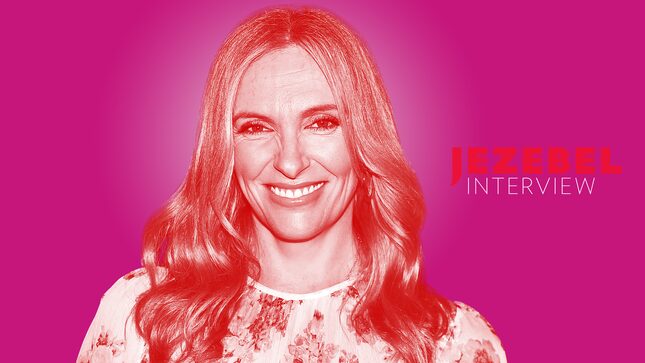Toni Collette on the Horror and Beauty of Grief in Hereditary
Entertainment

“H’aw’ya?” Toni Collette asked me as I entered the conference room at A24’s New York City office on Monday. It’s hard to say which was weirder: hearing the actor’s natural Australian accent or seeing her warm and smiling. She spends much of the movie she was in town promoting—Ari Aster’s familial tragedy/horror hybrid Hereditary—wild-eyed and howling in American-accented anguish. After a rapturous response at this year’s Sundance, Hereditary arrives with such buzz that part of A24’s marketing strategy is encouraging prospective viewers to “believe the hype.”
Collette plays Annie Graham, an artist and mother who’s struggling with a wave of difficulties with her family, kicking off with the death of her mother, whose passing she receives ambivalently. Annie is often cold and makes questionable parenting calls, while still blaming herself for her family’s problems even if she can’t quite articulate why. For a while, she grounds the movie, though as it hurtles to its climax, unhinging more and more with each scene, so does she. It is a furious, dynamic, frankly astonishing performance.
I’m being vague here about details because I think it’s best if you know nothing about the extraordinary and invigorating Hereditary before heading into it. There aren’t spoilers below, per se, but Collette and I did talk specifically about the emotional commitment this performance required during our 30-minute chat. We also discussed the bigger picture of her wide-spanning career (which has included such beloved works as Muriel’s Wedding, The Sixth Sense, and Showtime’s The United States of Tara) and Hollywood, as well as Harvey Weinstein and the sea change she’s witnessing in her industry. An edited and condensed transcript of our conversation is below.
JEZEBEL: Is the hype surrounding this movie daunting at all to you?
TONI COLLETTE: No, it’s exciting because I have made so many movies that kind of get kicked out and then drop like three feet from you. The fact that people: A) know this movie exists, and B) there’s this incredible, palpable energy around it and interest is fun. I love this movie. I think Ari is an incredible new filmmaker. It’s so surprising on so many levels. It was to me as I was reading it. I was told I was being sent a genre piece and I was like, “This feels like The Ice Storm, what are they talking about?” It just felt like this beautiful look at how painful grief is. And for all of the elements in this movie to be married so succinctly and creatively is so impressive.
To me, the scariest thing about this movie is that it’s fueled on the fear of the unknown. It’s so far-out that during the first viewing, it feels like anything could happen.
He’s so clever. Really, it’s this family grieving. They’re trying to navigate one of the most painful things any of us will go through. You care about them so much and when you’ve invested all this energy, it’s even more frightening. It’s not gratuitous, all the scary stuff comes from a place of purity. The actual story is so grounded and so real…and then it is just bonkers!
It reminds me of something from the ’70s in its clear vision and agency in achieving it.
It’s funny, this is a business and people want to invest in movies with a guaranteed audience. You can never determine who’s going to want to see your film, but a lot of those big films just water down everything, neutralize it for the masses, and ironically a film like this, which has this kind of strength and boldness and originality about it, that’s what people respond to. They respond to something with truth involved.
-

-

-

-

-

-

-

-

-

-

-

-

-

-

-

-

-

-

-

-

-

-

-

-

-

-

-

-

-

-

-

-

-

-

-

-

-

-

-

-








































